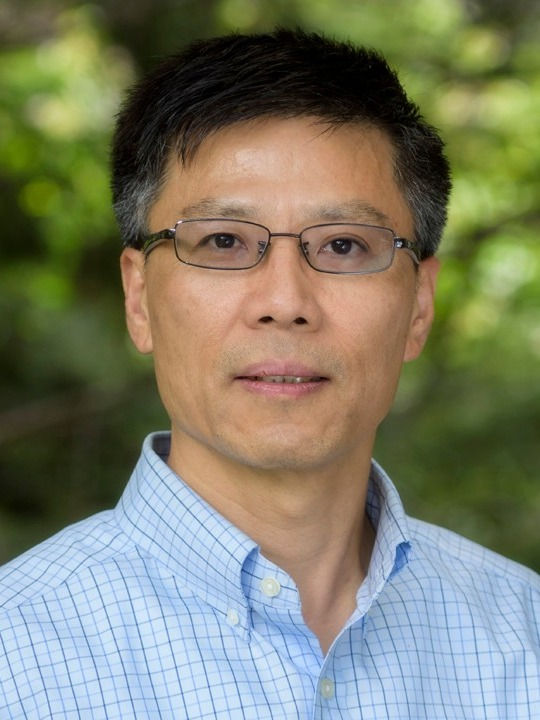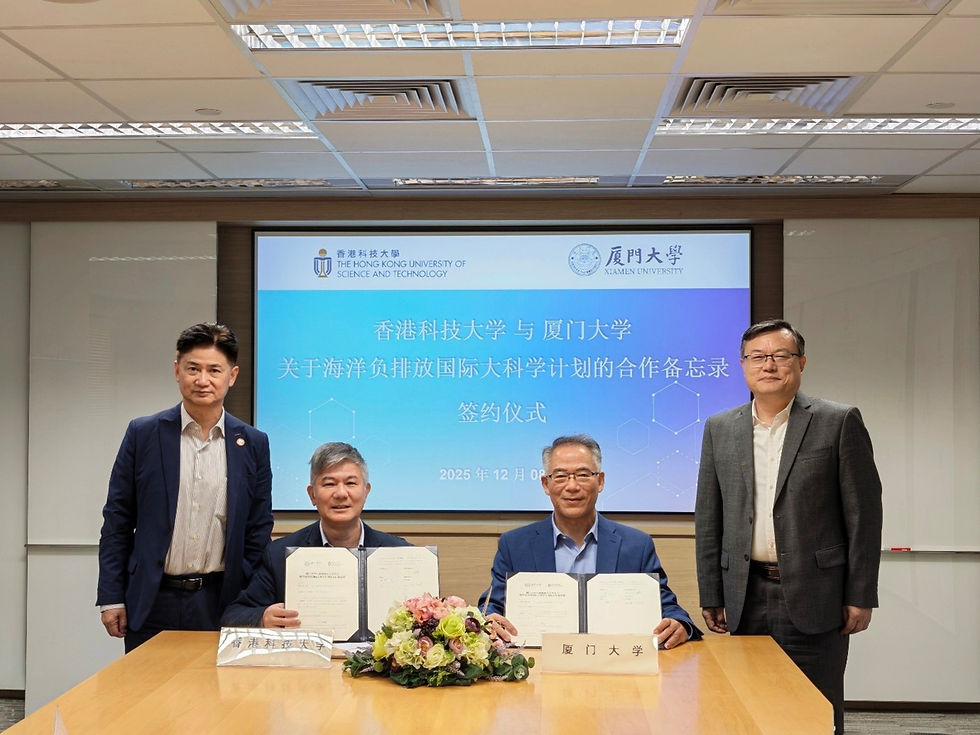[Advanced Study Institutes] Blue carbon and the role of coastal sea in carbon sequestration.
- Plankton Lab Hong Kong

- Jan 10, 2023
- 3 min read
Updated: Apr 14, 2023


Supported by the Croucher Foundation.
Date: 12th-14th April 2023 (3 Days)
Venue: Hong Kong University of Science & Technology
Target groups: Lead Researchers, University Faculty, & Post Graduate Students.
To signup (as either speaker or attendee), please fill in this form (1 min).
For any inquiries, email Dr. Anirban Akhand via asiblue@ust.hk (limited quota).
Tentative Rundown for ASI workshop:
About

The Plankton Lab is excited to announce our collaborative conference with the Croucher Foundation and the 2022 Advanced Study Institutes in the discussion of the specific role of coastal seas in carbon sequestration and blue carbon. The three conferences will focus on Hong Kong SAR's objective to attain carbon neutrality by 2050, and the scientific nuance and theories that expose the important role of the ocean as a carbon sequestration sink. We look forward to seeing our esteemed guests and industry experts.
Objectives
Provide a timely review of the historical trend and current status of the blue carbon in coastal wetlands in global estuarine and coastal ecosystems.
Revisit the role of the coastal ocean in the carbon cycle, especially the fate of the river input, with the newest advance in the research on the subject.
Estimate the upper and lower constraint of the capacity of the coastal seas (both regional and local scales) in absorbing anthropogenic CO2, including the efficiency and capacity of the “biological pump” (including the "microbial carbon pump") in a warming scenario.
The possible mitigation measure for Hong Kong's marine territory, such as green aquaculture and wetland restoration, is to help our government to reach its goal of carbon neutrality.

Significance

The Hong Kong SAR government has announced that it aims to reduce CO2 emissions to 50% of the 2005 level and reach carbon neutrality by 2050. A similar promise is declared by China and a number of other countries. To reach that goal, the potential of carbon storage in Hong Kong's coastal territory needs to be assessed. The important role of the ocean in absorbing and storing CO2 has been recognized since the late 1980s. We now know that the ocean is the largest sink of anthropogenic CO2, absorbing about 1/3 of annual emissions.
Photosynthesis of marine primary producers, such as phytoplankton and cyanobacteria, draws down CO2 from the atmosphere. They are eaten by zooplankton, which produces fecal pellets and carbon-containing aggregates that sink to the depths and are buried in sediment. The sum of a suite of biologically mediated processes that transport carbon from the surface euphotic zone to the ocean's interior is called the “biological pump”. However, most of the studies on the mechanism and efficiency of "biological pumps" focus on the open ocean, though the importance of the coastal and shelf sea has been gradually realized in recent years.
Now, as the topic of net zero and carbon neutrality become a global consensus, we need to review the current status of our knowledge, reevaluate the ocean’s role, update regional and global models, and provide an accurate assessment of carbon budget and storage potential in the near shore and offshore waters of the Greater Bay Area. Moreover, the importance of “blue carbon” - coastal wetlands, including mangrove, seagrass, and salt marsh, is gaining attention in recent years. It is urgent to assess the amount of "blue carbon" in Hong Kong's marine territory and its carbon sequestration potential, and include it in the calculation of the carbon budget.
Keynote Speaking Scholars
Prof. Peter Macreadie
Director Blue Carbon Lab
Centre for Integrative Ecology
Deakin University, Burwood campus
221 Burwood Hwy, VIC 3125
Prof. Nianzhi Jiao
Academician of the Chinese Academy of Science
State Key Laboratory of Marine Environmental Science
Xiamen University, China
Prof. Carlos M Duarte
Distinguished Professor of Marine Science
Tarek Ahmed Juffali Research Chair in Red Sea Ecology, King Abdullah University of Science and Technology, Saudi Arabia
Prof. WeiJun Cai
Mary A.S. Lighthipe Chair of Earth
Ocean, and Environment
School of Marine Science and Policy
University of Delaware, USA
Prof. Joe Lee
Simon FS Li Marine Science Laboratory
School of Life Sciences
The Chinese University of Hong Kong, Hong Kong SAR, China
Prof. Fei Chai
Chair Professor
Department of Marine Science
Xiamen University, China
Prof. Masahiro Nakaoka
Akkeshi Marine Station
Section of Population and Community Ecology
Hokkaido University, Japan















Comments